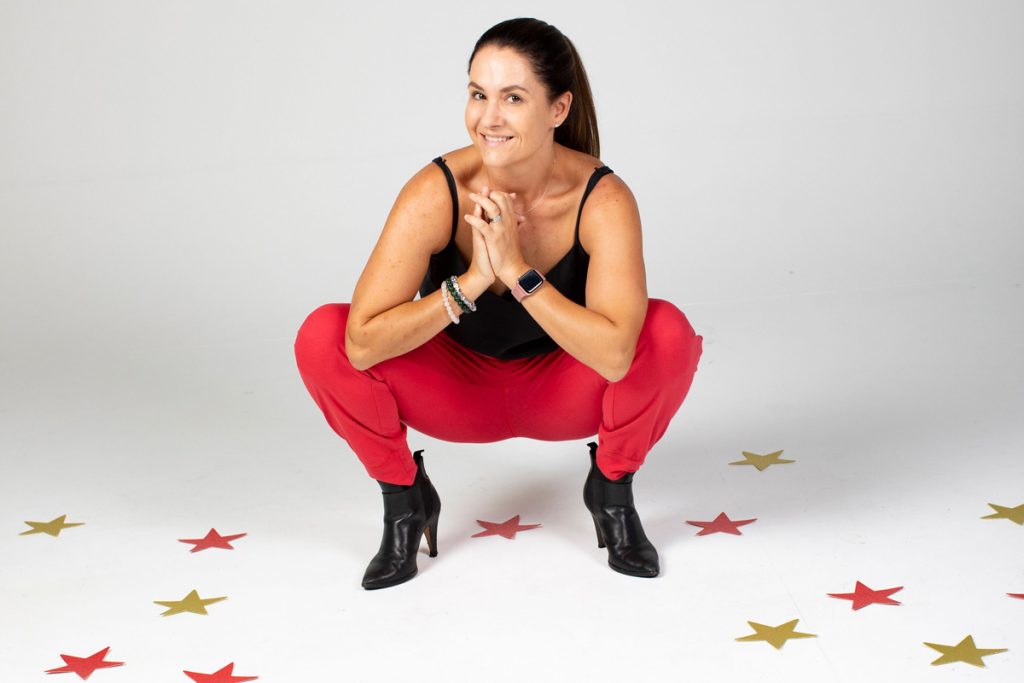By Jen Dugard
There are many topics that are not openly talked about and as women we can find ourselves guessing about what is normal or not normal. We might also find ourselves ignoring warning signs or suffering from things we were never told about.
Your pelvic floor (PF) happens to be one of those ‘topics’. If you become pregnant or have a baby then hopefully your pelvic floor awareness will grow but what if you don’t have babies or no one talks to you about your pelvic floor…. What then?
Let’s jump into FIVE things that women need to know about their pelvic floor, but don’t!
1It’s an internal muscle and you cannot tell it is working well from external touch or feel. Sometimes it is mistaken that feeling the abdominals inside the hip bones can offer feedback on pelvic floor. This is incorrect. This is the Transversus Abdominis (TA) you are feeling contract. Yes, the TA is designed to co-contract with the PF but in many people, especially postpartum women, it does not. So, we cannot use this as a reliable test.
2You might need to learn to relax it – some women have a hypertonic or overactive pelvic floor. This could be you if you had a hard time pushing your baby out or ended up with an emergency c-section after trying to push. Other symptoms of a hypertonic PF could be re-occurring UTI’s, painful sex, glute or lower back pain.
This could also be you if you are a younger or highly trained woman that has never had babies. We are seeing more and more young women with symptoms of a hypertonic pelvic floor and are suffering with the above symptoms. With the right support and treatment, it doesn’t have to be this way.
3You could be pushing out – research suggests that 50-60% of women bare down (push out) on their pelvic floor instead of drawing it up (the correct movement) when they are simply told how to do their pelvic floor exercises verbally or they read them from a brochure. This means that a woman who thinks she is ‘strengthening’ her pelvic floor through regular exercises could be weakening them. Imagine this same woman then goes into the gym and loves to lift a bar bell – she loads up the bar thinks she is drawing up at the hardest point of the exercise and now pushes out underload – not ideal!
4It helps you to orgasm – not experiencing an orgasm may have nothing to do with your PF at all (you may need a good chat with your partner) however your superficial pelvic floor is linked to your ability to orgasm. If it is not able to contract well enough orgasm may be difficult or not happen at all.
5When it is damaged it may not be painful – for women that have had babies their pelvic floor muscles may become stretched and weaker. This may lead to symptoms of incontinence which is common but not something you should just accept and live with forever.
Unfortunately, many women do live with incontinence and continue to do exercise that may further weaken their pelvic floor because it’s not painful. Annoying yes, but if they are driven by an aesthetic or performance based goal they could ignore the symptoms and as a consequence they may get worse down the track or lead to other contraindications such as prolapse that may have been prevented.
To combat all the above the most effective way you can properly understand YOUR pelvic floor as a woman is to book an appointment with a Women’s Health Physiotherapist (WHP). If you are a pregnant or postpartum woman making sure you have a WHP or Pelvic Health Physio as part of your care team is vital and can make a huge difference to your delivery and post-birth experience. If you are a woman who hasn’t had children OR who had babies many years ago and has never seen a WHP if you have any symptoms at all seeing a WHP could be a game changer for you.
As Fitness Professionals we call our WHP our ‘eyes on the inside’ and those who are experienced in working with pregnant and postnatal women know that we cannot do our best possible job in appropriate exercise prescription without their support.
To find a Women’s Health Physiotherapist in your area you can head to the ‘find a physio’ section over at www.mumsafe.com.au/physios
Jen Dugard is the founder and creator of MumSafe™️ – the go-to website for mums to connect with Personal Trainers that are certified, experienced and partner with Women’s Health Physiotherapists so that you know you are in very safe hands.


